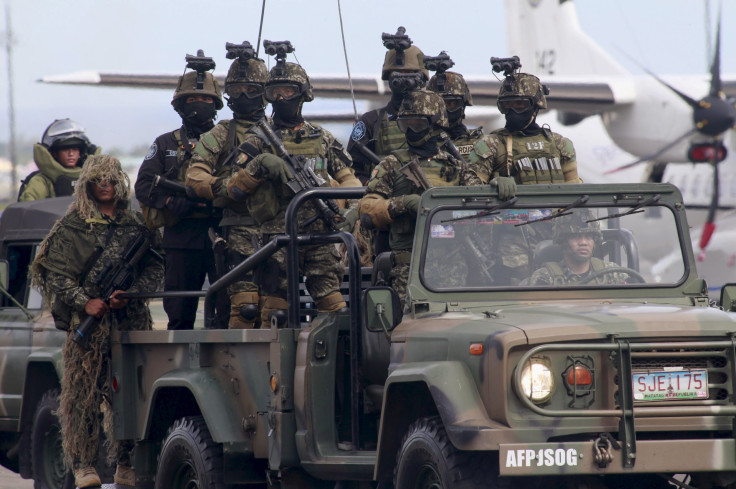South China Sea Controversy 2016: Two More Planes Land In Disputed Territory

After angering Vietnam and increasing tensions in the South China Sea over the weekend, China again Wednesday landed test flights on a man-made island in the Spratly chain, Reuters reported. The two flights are likely to again anger Vietnam and other countries in the region that claim territory in the disputed sea.
“The successful test flights proved that the airport has the capacity to ensure the safe operation of large civilian aircraft,” China’s Xinhua news agency reported. No details were mentioned on the types of planes that landed on the artificial island.
Vietnam launched a protest following the weekend flight and the Philippines said it would as well. Both countries have overlapping claims with China. The South China Sea region has been long disputed, with Brunei, China, Malaysia, the Philippines, Taiwan and Vietnam laying claim to different areas. China has claimed a large portion of the sea, which accounts for a key economic maritime area.
Beijing has been expanding its claim in the South China Sea by building three runways in the Spratly archipelago. The civilian aircraft landing Saturday was the first one on Fiery Cross Reef. The runways are long enough to support military aircraft, including long-range bombers, Reuters reported.
“[This is] a serious infringement of the sovereignty of Vietnam on the Spratly archipelago, contrary to the common perception of high-ranking leaders of the two countries and an agreement on the basic principles for directly solving maritime issues between Vietnam and China,” said Le Hai Binh, a representative of Vietnam’s foreign ministry.
China has continued to defend its actions, arguing it does not have any intention of starting a conflict and that aircraft facilities will maintain safety in the region.
“As a responsible country, China will continue promoting the building of emergency response and rescue facilities in an effort to shoulder the international obligations of search and rescue operations, marine environmental protection, disaster prevention and reduction, and navigation safety,” another report from Xihua said.
© Copyright IBTimes 2025. All rights reserved.






















